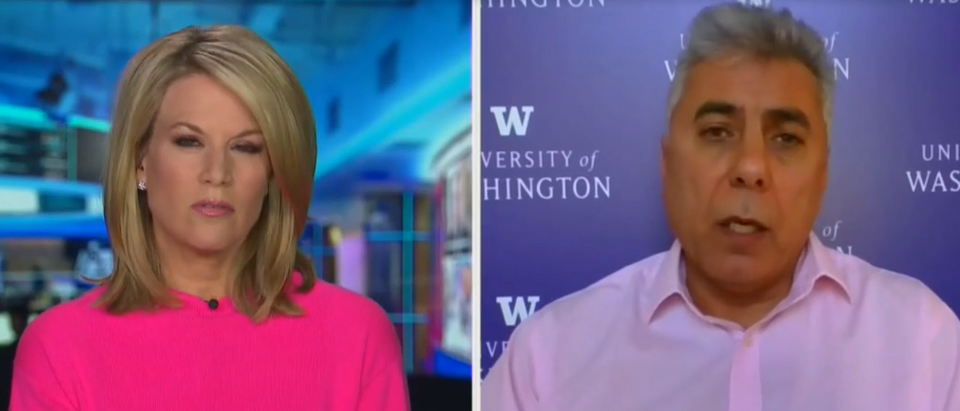Dr. Ali Mokdad, a health metrics sciences professor at the Institute for Health Metrics and Evaluation (IHME), appeared to dodge a question from Fox News host Martha MacCallum about low coronavirus death numbers in Japan despite that country’s decision to not go as far as other countries in shutting down its economy.
The University of Washington’s IHME model has been “widely used and quoted by the White House,” MacCallum noted. Even taking social distancing measures into account, the model’s previously predicted dire death totals have been revised downward of late and currently stand at just over 60,000.
Appearing on Thursday night’s “The Story with Martha MacCallum,” Mokdad attributed the decline to Americans “doing their part” by social distancing.
MacCallum, however, wanted to know whether the social distancing measures were already “factored in.”
WATCH:
“No, it was factored in, but for states that came later, it was clear that people even in those states where there was no order to stay at home, they were practicing social distancing. So Florida, for example, came later, but it seems that parts of Florida such as Miami, they had an order in place, so the data is coming up and showing that people [were] adhering to these messages even before they were implemented in their states,” Mokdad responded.
MacCallum pointed out the “questions” raised by the model, particularly whether the success could be “something else,” considering that Japan “only lost 85 people” but “did sort of a very comprehensive mask program early on and limited some gatherings, but did not by any means do the kind of across the country lockdowns that the United States has done.”
Mokdad appeared to ignore the Fox News host’s question, saying, “For this pandemic right now and COVID-19, since we don’t have a vaccine or even a medication for it, what’s working for us is social distancing. And in the model clearly of following the mortality exactly in the new data that’s coming is really leading to that success story. In my point of view, this is a positive sign that what we are doing is working and we should reinforce that message.”
“So why did Japan lose so few people, do you think, when they didn’t do that?” said an undeterred MacCallum, only to be dodged again. (RELATED: Tucker Carlson Questions Data Behind Prolonged Shutdown: ‘It’s Time To Start Caring About The Entire Population’)
“Well, other countries, we know when they didn’t do so they had a higher rate of mortality,” he responded. “If you look at what happened in Italy or even in China when they didn’t take it seriously early on and they came back and they enforced these measures, they were able to control the epidemic in their own country. So what we are learning right now, we have even signs in my state in Washington and California that these measures when they were implemented earlier, they were able to reduce the projected number of deaths, but the most important — we are talking about mortality here, but the most important part is that we are reducing the burden on our hospitals and we are allowing our physicians to provide medical services and stretch their resources.”
MacCallum was eventually able to get a “we don’t know” out of the IHME professor when asking if the virus was “in the United States a lot earlier than people thought.”


